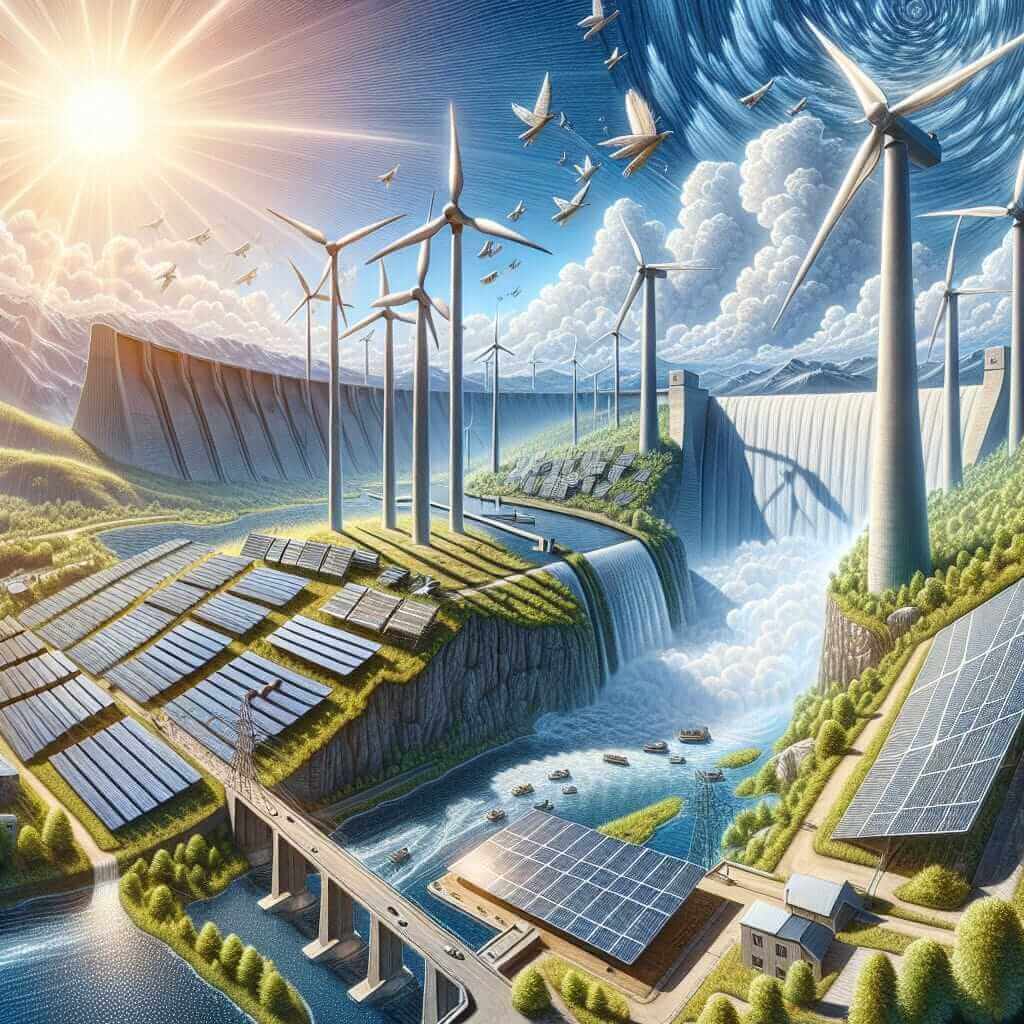The IELTS Reading exam is well-known for its diverse and challenging passages, often covering topics of current global importance. One such pertinent topic is “Challenges in achieving energy independence.” This theme has appeared frequently in past tests and is expected to continue being relevant due to its significant implications on global economics, politics, and the environment.
Full Sample Reading Passage
Below is an IELTS Reading passage on the topic of “Challenges in Achieving Energy Independence,” structured to simulate an actual IELTS Reading test.
Challenges in Achieving Energy Independence
Achieving energy independence, defined as the ability of a nation to fulfill all its energy needs without importing resources, presents several nuanced challenges. These challenges stem from a combination of technological, economic, political, and environmental factors.
Economically, the shift to energy independence can be prohibitively expensive. Countries heavily reliant on fossil fuel imports face steep initial costs in developing renewable energy infrastructures, such as solar panels, wind turbines, and hydroelectric plants. Financial constraints can hinder progress, especially in developing nations where funding is limited and often diverted to more immediate needs.
Technologically, the energy sector is continuously evolving. Despite advancements, many renewable energy technologies are not yet efficient enough to compete with traditional fossil fuels on a large scale. Energy storage remains a critical bottleneck, with current technology unable to store energy produced from renewable sources effectively.
Politically, the drive for energy independence can challenge existing geopolitical dynamics. Nations rich in fossil fuels may resist the shift towards renewables, leading to tensions and potential conflicts. Furthermore, policy inconsistency and lack of long-term planning can deter investment in alternative energy.
Environmentally, while renewable energy sources are generally more sustainable, their development is not without impact. Large-scale solar and wind projects can disrupt local ecosystems, requiring careful consideration and planning to minimize environmental damage.
In conclusion, achieving energy independence is a multifaceted issue requiring coordinated efforts across economic, technological, political, and environmental spheres. Only through comprehensive strategies and international cooperation can the challenges be successfully addressed.

Questions
Multiple Choice
-
According to the passage, what is a significant economic barrier to achieving energy independence?
- A. Political instability
- B. Technological inefficiency
- C. High initial costs
- D. Environmental issues
-
What is described as a critical technological bottleneck in the passage?
- A. Political resistance
- B. Energy storage technology
- C. Policy inconsistency
- D. Ecological impacts
Identifying Information (True/False/Not Given)
- Developing nations often have more financial resources for renewable energy projects. (True/False/Not Given)
- Energy independence can change geopolitical relationships. (True/False/Not Given)
- Renewable energy projects never harm the environment. (True/False/Not Given)
Matching Headings
-
Match the correct heading to each paragraph:
- i. Economical Challenges
- ii. Technological Constraints
- iii. Impact on Ecosystems
- iv. The Definition of Energy Independence
- v. Political Barriers
Paragraph 1:
Paragraph 2:
Paragraph 3:
Paragraph 4:
Paragraph 5: __
Sentence Completion
- Achieving energy independence requires ___ across multiple sectors.
Answer Key
- C
- Explanation: The passage states that the shift to energy independence can be “prohibitively expensive” due to the “steep initial costs in developing renewable energy infrastructures.”
- B
- Explanation: The passage mentions that “Energy storage remains a critical bottleneck.”
- False
- Explanation: The passage suggests the opposite, stating that “developing nations…face steep initial costs.”
- True
- Explanation: The passage notes that energy independence can “challenge existing geopolitical dynamics.”
- False
- Explanation: The passage states that “renewable energy sources… are not without impact” on the environment.
- Paragraph 1: iv
- Paragraph 2: i
- Paragraph 3: ii
- Paragraph 4: v
- Paragraph 5: iii
- coordinated efforts
Common Mistakes
- Misinterpreting Questions: Always re-read the questions carefully to avoid misinterpretation.
- Time Management: Ensure you allocate appropriate time to each question type to avoid running short of time.
- Keyword Overuse: Avoid depending solely on keywords. Understanding the context is crucial.
Vocabulary
- Prohibitively (adverb): prəˈhɪbɪtɪvli – In a way that prevents something from being done or happening.
- Bottleneck (noun): ˈbɒtlˌnɛk – A point of congestion or blockage.
- Geopolitical (adjective): ˌdʒiːəʊpəˈlɪtɪkəl – Relating to international politics influenced by geographical factors.
Grammar
- Complex Sentences: Utilize to express intricate ideas clearly. Example: “Despite advancements, many renewable energy technologies are not yet efficient enough to compete with traditional fossil fuels on a large scale.”
Tips for Scoring High in IELTS Reading
- Practice Regularly: Engage with diverse reading materials on various topics.
- Understand Question Types: Familiarize yourself with different question formats and practice them.
- Use Process of Elimination: Methodically eliminate wrong answers to increase your chances of selecting the correct one.
- Work on Vocabulary: Regularly update and revise your vocabulary to understand passages better.
- Review Your Mistakes: Learn from errors by reviewing model answers and answer keys.
By following these tips and regularly practicing with realistic test passages like the one provided, you can improve your IELTS Reading score and enhance your overall test performance.